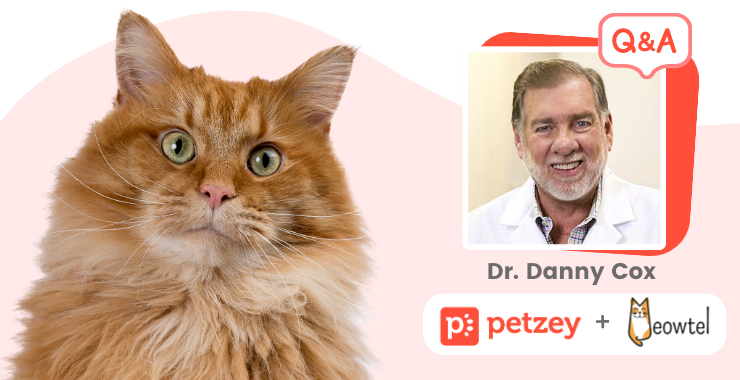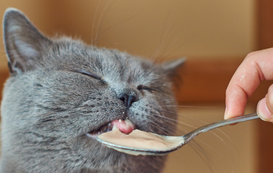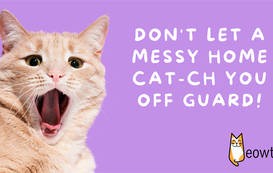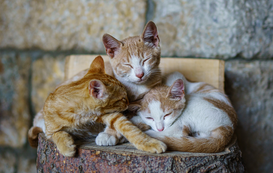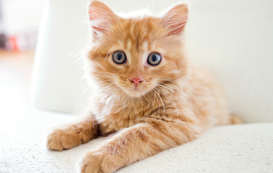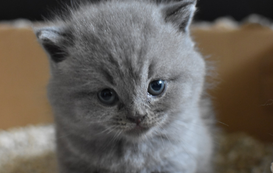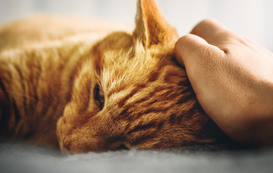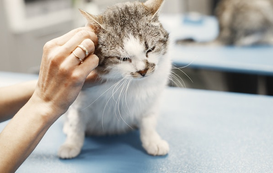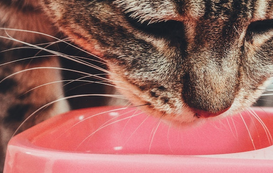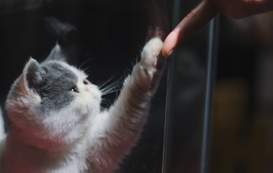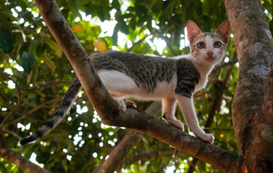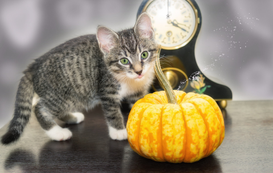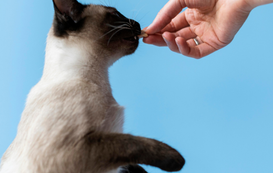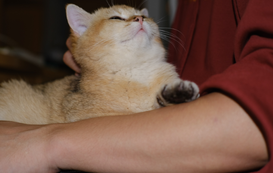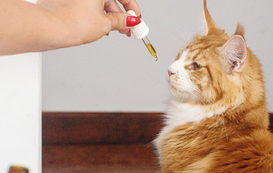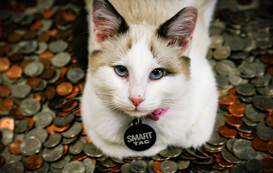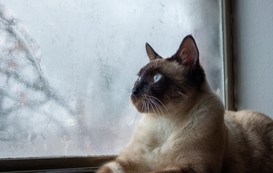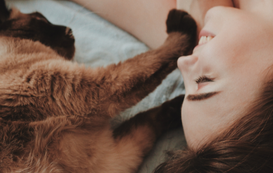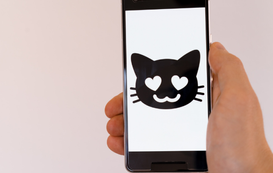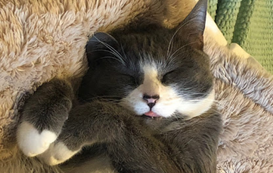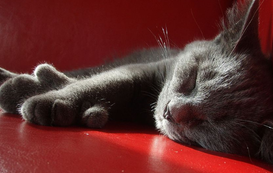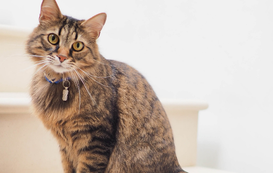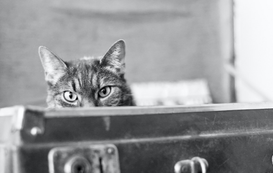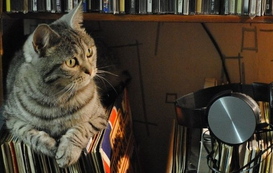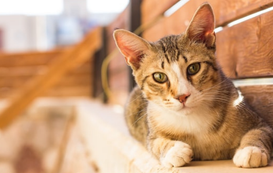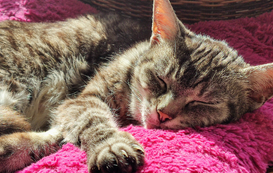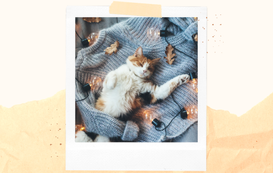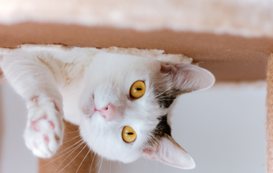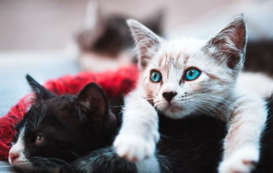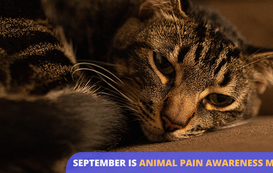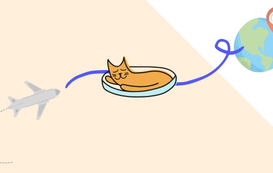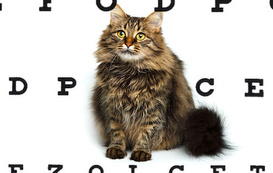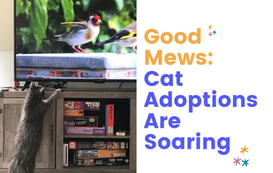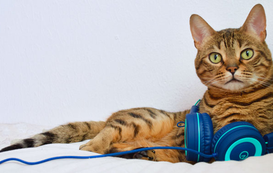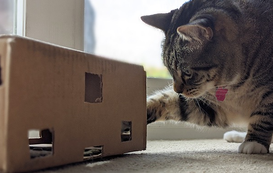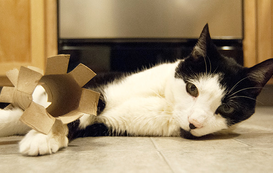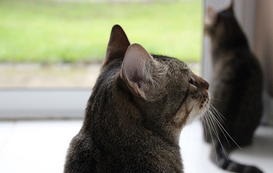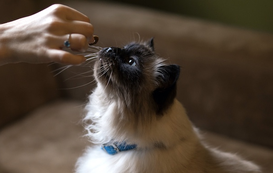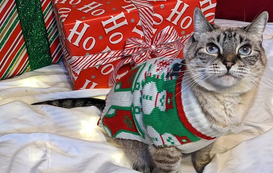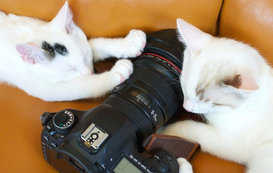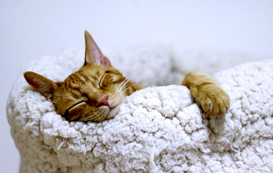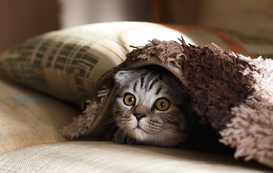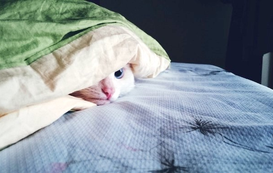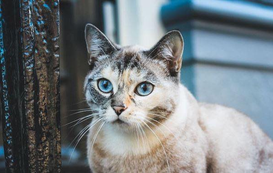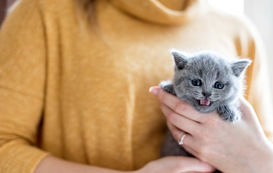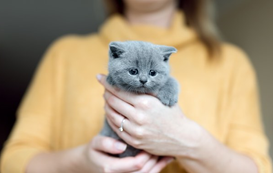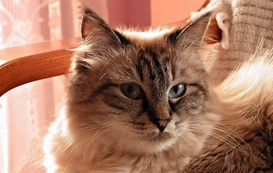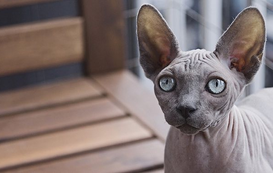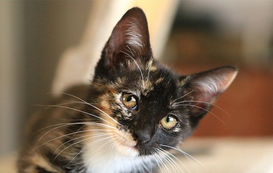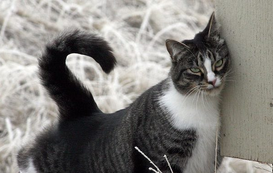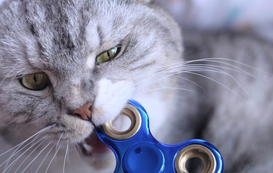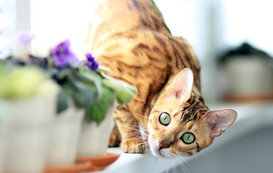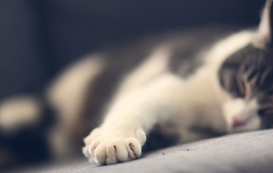Sitters on Meowtel have the incredible privilege of caring for beloved feline friends. However, as the saying goes, with great power comes great responsibility! When is it safe to continue with a reservation and when is it time to say, "paws off?" In this Q&A guide, Meowtel sat down with expert veterinarian Dr. Danny Cox from Petzey, so he could spill the beans on how these pesky illnesses spread while also sharing some paw-some tips for how cat sitters can help keep their furry clients safe and sound.
What are Communicable Diseases in Cats?
Q: What exactly are communicable diseases in cats?
A: A communicable disease is any illness caused by viruses, bacteria, protozoal organisms, or internal/external parasites that can be transmitted between cats, or zoonotically from cats to humans or other animal species through various methods.
How Are Communicable Diseases Transmitted Among Cats?
Q: What transmission methods should sitters on Meowtel and cat parents be aware of?
A: Transmission of a communicable disease can occur through direct contact with bodily excretions like feces, secretions such as urine, nasal droplets, or saliva, as well as through inhalation, bite wounds, and scratches. It can also happen via fomites, which include objects like food dishes, bedding, blankets, soil, or even a caregiver's unwashed hands.
Highly Transmissible Diseases
Q: Are there diseases that cat sitters should be particularly cautious about or avoid sitting for to help protect the health and safety of their other clients?
A: Yes, for cats with Ringworm (skin lesions) or known Upper Respiratory Infections (symptoms like sneezing, coughing, nasal or ocular discharge), take extra precautions. If you're sitting for multiple households on the same day, it is recommended to thoroughly wash and disinfect your hands, or consider wearing disposable gloves, while administering treatments, handling the cats, and cleaning their litter box and bedding. It is recommended to do this between visits to each house. Also, try to avoid scheduling multiple visits to different houses on days if you encounter a large flea infestation in one of the households, especially on the cats or in their bedding/house.
Meowtel Pro Tip: Handling situations involving clients whose cats are afflicted with a contagious illness or have a flea infestation requires delicacy and sensitivity. Sitters should never feel compelled to take on such cases if they feel uncomfortable or doubt their ability to safeguard other cats in their care.
Meowtel prioritizes the well-being of sitters on the platform and offers assistance in navigating these challenging circumstances. The Fit For Service policy is designed to protect sitters from unsafe environments. If you encounter any of these issues or have concerns about a client's home or cats, please don't hesitate to contact Meowtel at 1-844-MEOWTEL via text or phone, or reach out via email at [email protected]. We're here to support you every step of the way. You can also check out the Fit For Service blog postfor even more information.
Moderately Transmissible Diseases
Q: How can cat sitters handle diseases with moderate transmissibility? Is it safe to sit for these kitties with proper precautions?
A: Moderate transmissibility issues, such as diarrhea, could be caused by various agents like viruses (e.g., panleukopenia), bacteria (e.g., Campylobacter, especially in young kittens), or protozoal parasites (e.g., coccidia, giardia). To handle these situations, always wash and disinfect your hands, and consider wearing disposable gloves. Employing common sense and maintaining good hygiene practices are essential in these cases.
Meowtel Pro Tip: Buying gloves to keep your kitty clients extra safe? Keep those receipts! As independent contractors, sitters on Meowtel may be able to write off care items and other business expenses during tax time. This is not tax advice - please do your own research or consult a CPA for guidance on your specific situation.
Minimally Transmissible Diseases
Q: Are there diseases with lower transmission rates that cat sitters can safely sit for? Do any extra precautions need to be taken?
A: Cats that are up-to-date with their vaccinations and predominantly live indoors are less likely to carry and transmit communicable diseases to other cats, family members, or caregivers. Following these guidelines, adopting basic safety precautions, practicing situational awareness, and using common sense can significantly reduce the risk of disease transmission by caregivers.
Meowtel Pro Tip: You may be wondering about the safety of caring for cats with feline FeLV or FIV. Let's address FeLV first. Cats infected with FeLV release infectious viral particles not only in their saliva but also in their feces, urine, and milk. FeLV can spread through close contact among cats, such as through bite wounds, grooming each other, or sharing food, water dishes, and litter boxes. It's worth noting that the virus doesn't survive long outside a cat's body - typically just a few hours - so the likelihood of infection from the environment alone is low unless there is prolonged close contact with an infected cat. Practicing good hand-washing hygiene, and spacing out your cat-sitting visits between clients are great ways to avoid potentially spreading the virus via your person.
When it comes to FIV, it's important to note that the disease exclusively affects cats, leading to a compromised immune system. FIV is primarily transmitted through fighting, biting, and exchange of body fluids among cats. Unlike some other diseases, it doesn't spread through the environment or to humans or other animals. Consequently, the likelihood of transmitting the disease to clients' households is extremely rare. However, like any visit, washing hands before and after visiting each new household is recommended. For more on how FeLV and FIV can affect immunocompromised humans, please see veterinarian Dr. Cox's advice below.
Protecting Cats from Communicable Diseases
Q: What measures can cat sitters take to protect the cats under their care?
A: It is recommended that cat sitters prioritize taking precautions to prevent the transmission of feline diseases. This includes thoroughly washing and disinfecting hands, and wearing disposable gloves while handling cats. These precautions are essential for activities such as cleaning, bathing, snuggling, feeding, watering, changing bedding and litter boxes, and administering medications. This practice should be consistent both within a common group of cats and when moving between different cat populations, such as from one household to another.
Can Humans Contract Communicable Diseases from Cats?
Q: Is there a risk for cat sitters in contracting diseases from cats?
A: Yes, particularly cat sitters who are immunocompromised, ill, or pregnant. They should be cautious about diseases like Toxoplasmosis (Toxoplasma Gondii), commonly found in soil (gardens) and cat fecal matter (including internal organs of wild prey). Some diseases can be asymptomatic in cats or present as lethargy, weakness, and coughing. In immunocompromised individuals, these conditions can weaken the human immune system and potentially cause harm. Therefore, it's advisable for individuals in these situations to avoid cleaning litter boxes and to be cautious about caring for cats exhibiting these symptoms.
Cat sitters should also be aware of the following diseases:
- Rabies, typically transmitted through bites.
- Infestations of external parasites, including fleas (which can carry the plague) and ticks (which can transmit diseases like -Ehrlichiosis, Lyme Disease, Rocky Mountain Spotted Fever, and Anaplasmosis, as well as Q Fever caused by Rickettsia bacteria). Also, be wary of Scabies mites.
- Internal parasites, such as tapeworms, roundworms (which can cause visceral and ocular larval migrans), hookworms, whipworms, coccidia, and giardia, mainly transmitted through fecal contamination.
- Ringworm, which is not an actual worm but a group of fungi that can easily infect human skin.
- Cat Scratch Fever Disease, which can result from a cat bite or scratch, often leading to bacterial abscesses and pus contamination.
Conclusion:
The goal at Meowtel is to help every cat and cat parent live their best life. Sitters on Meowtel, armed with the 411 on cat diseases, are set to do just that. Being savvy about these illnesses is key, especially when it comes to knowing what precautions to take to prevent the spread of illnesses. We know it can be challenging to know when to decline a reservation to promote a secure and enjoyable sitting experience for everyone involved, and hope this guide helps to empower sitters to make those calls. Remember, we're always here to help if you have more questions or concerns!

